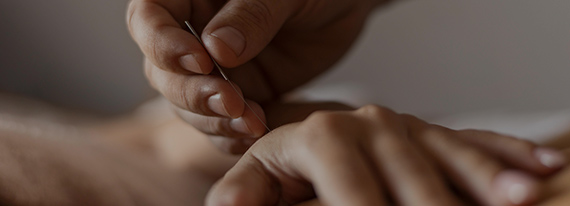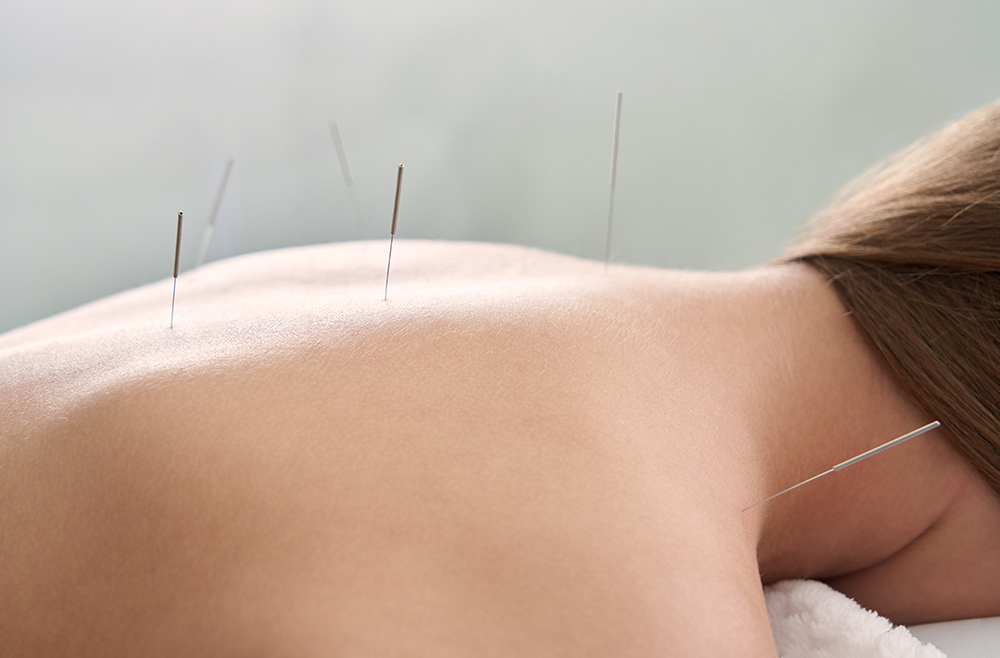What is Acupuncture?
Acupuncture is the practice of penetrating the skin with thin, solid, metallic needles which are then activated through gentle and specific movements of the practitioner’s hands or with electrical stimulation.
The history of acupuncture has its roots in the ancient practice of Traditional Chinese
Medicine: Traditional Chinese Medicine practitioners believe the human body has more than 2,000 acupuncture points connected by pathways or meridians. These pathways create an energy flow (Qi, pronounced “chee”) through the body that is responsible for overall health. Disruption of the energy flow can cause disease. By applying acupuncture to certain points, it is thought to improve the flow of Qi, thereby improving health.
Modern medicine and scientific studies have shown that acupuncture points are supplied by high concentrations of nerve endings and bundles, mast cells (used for immune function) lymphatics and capillaries. In addition, acupuncture points have a lower electrical resistance, compared with surrounding skin.
Acupuncture points are believed to stimulate the central nervous system. This, in turn, releases chemicals into the muscles, spinal cord, and brain. These biochemical changes may stimulate the body’s natural healing abilities and promote physical and emotional well-being.
National Institutes of Health (NIH) studies* have shown that acupuncture is an effective treatment alone or in combination with conventional therapies to treat a variety of conditions, the list of which continues to grow as acupuncture has become more widely accepted as a viable modality to treat many conditions with few complications and side effects.
* https://www.nccih.nih.gov/health/acupuncture-in-depth

Acupuncture has been shown to be effective in treating a much wide range of medical conditions. A list from the Johns Hopkins Medicine organization includes the following.
| Digestive | Emotional |
|---|---|
| Gastritis Irritable bowel syndrome Hepatitis Hemorrhoids |
Anxiety Depression Insomnia Nervousness Neurosis |
| Eye-Ear-Throat | Gynecological |
|---|---|
| Rhinitis Sinusitis Sore throat |
Menstrual pain Infertility |
| Musculoskeletal | Neurological |
|---|---|
| Arthritis Back pain Muscle cramping Muscle pain and weakness Neck pain Sciatica |
Headaches Migraines Neurogenic bladder dysfunction Parkinson’s disease Postoperative pain Stroke |
| Respiratory | Miscellaneous |
|---|---|
| Allergic rhinitis Sinusitis Bronchitis |
Irritable bladder Prostatitis Male infertility Some forms of impotence Addiction |
Source: https://www.hopkinsmedicine.org/health/wellness-and-prevention/acupuncture


